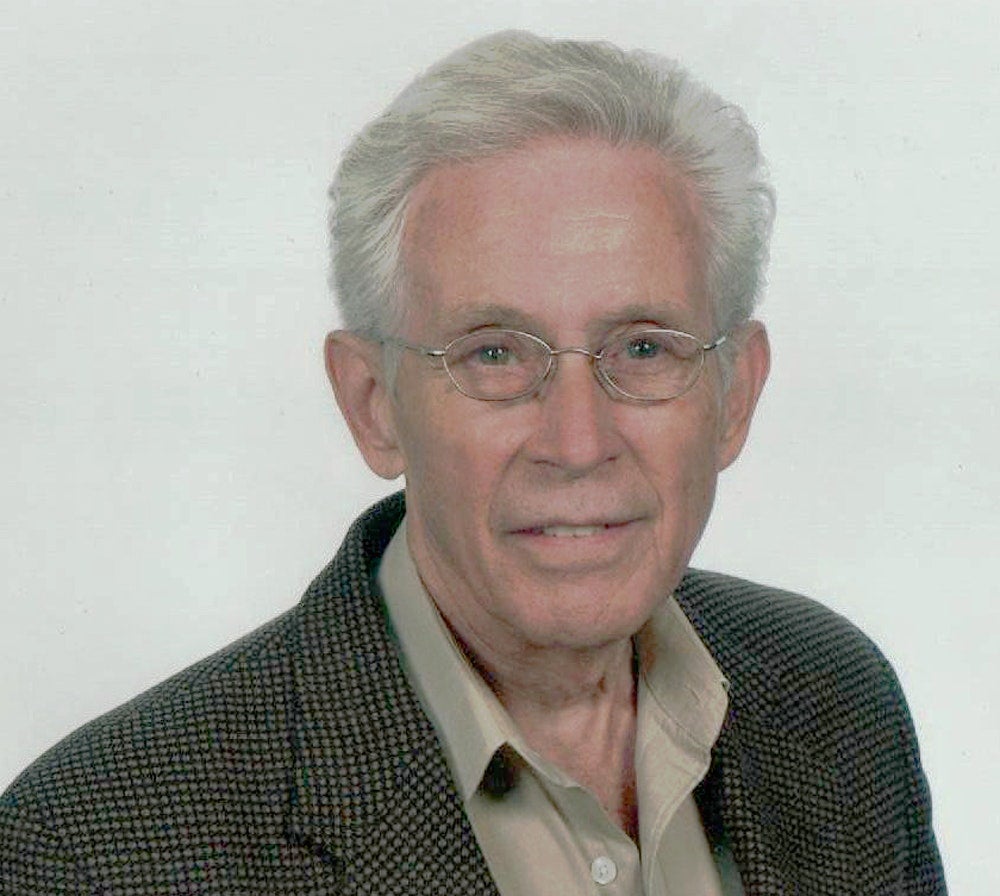The opening chapter of Franklin T. Burroughs’ 2013 memoir, “The Pepper Tree Kingdom,” describes the author’s flight in 1979 from Tehran, temporarily leaving his Iranian-born wife Mahin (Molavi) Burroughs (’64, M.S., Public Health) and their children behind as he returned to the United States to rebuild their lives away from the shadow of a conservative Muslim regime and pending incarceration.
Burroughs (’64, Ed.D., Comparative Education/Middle East Studies) says that the climate in Iran at that time was the opposite of the way his wife, who achieved her college education in the U.S., was raised.
“[Mahin’s] family was one of the most open-minded families I have ever had the fortune to be in touch with,” Burroughs recalls. “Her mother was the daughter of a leading early 20Century scholar in Iran in the early 20Century, and her uncle earned a degree in Islamic Studies in Iraq but went into business upon returning home to Iran. It was an intellectual family and they accepted me for who I was. They told me, ‘Whatever you believe, just believe it and go forward with it.’”
Burroughs, who was born in Wilmington, California, grew up in the Pentecostal Movement but joined Presbyterian Church in his late teens. He says that he wrote “The Pepper Tree Kingdom” with the theme of “…trying to find myself.”
“That is something that I’ve searched for all my life,” Burroughs notes. “I’ve always wondered about [whether or not] I am really doing the right thing. My father was a Pentecostal minister and always insisted that I follow certain guidelines and principles that he espoused. Like a lot of children, I sort of rebelled against the religious element and went my own way. But I always felt as if I needed to know who I was. I think I’m still looking for myself.”
Burroughs attended the UCLA Graduate School of Education with a National Defense Scholarship. After graduation, he and his wife spent 15 years in the Middle East where he served in several governmental positions, including general manager of the Iran-U.S. Chamber of Commerce, as a consultant to the governments of Iran and Saudi Arabia, as well as consulting for the U.S. Departments of Commerce and Energy.
Currently, Burroughs is a part-time contract officer with the U.S. Department of State, working on its behalf to welcome visitors from other nations who visit the U.S. at the invitation of the American government. He is currently writing a new book about his experiences in the Middle East titled, “Patterns on a Prayer Rug,” which includes passages about his and his wife’s graduation from UCLA when the Shah of Iran served as the commencement speaker. He says that the United States needs a better understanding of Middle East history and cultures in order to help end conflicts.
“We’ve become, in a sense, an imperialist country,” says Burroughs. “We don’t understand – or don’t really want to understand – that there are conflicts that are going to continue. Rather than contributing to those conflicts, we should be working in a very subtle way to settle them. The United States, either innocently or deliberately, had a lot to do with the Islamic Revolution and the establishment of the Islamic Republic. Much of the difficulty in the Middle East region can be attributed to misguided American diplomacy or a lack of cultural understanding.
“I personally was asked by the Shah to go to President Carter and make a proposal for the establishment of a constitutional monarchy in Iran. The Shah had a good point. He said he could prevent a lot of what he predicted would happen if a constitutional monarchy were established, but the U.S. government wouldn’t listen. Some people say [the conflicts are strictly [related] to oil production and exports. But it’s really about not understanding the cultures there. We don’t, for example, seem to grasp or care about the difference between the Shi’a and the Sunni. We cannot just let go and think that Saudi Arabia and Iran are going to work something out – that needs to be done with a strong but understanding intermediary.”
Burroughs says that his education at UCLA prepared him well for his life in diplomatic service.
“It broadened my horizons and it helped me understand more about [other nations],” he says. Even the professors back then – one from Switzerland, another from Turkey, another from the U.S. – represented a mixture of cultures and points-of-view. The Comparative Education program was small, and I would meet with my professors or they’d come to our house and we could sit and talk. It prepared me and enabled me to feel how others see the world and how I might learn and use what I learned positively. It was a tremendous opportunity for me to develop a broader understanding of what goes on and why it goes the way it goes.”
Above: Courtesy of Franklin Burroughs
